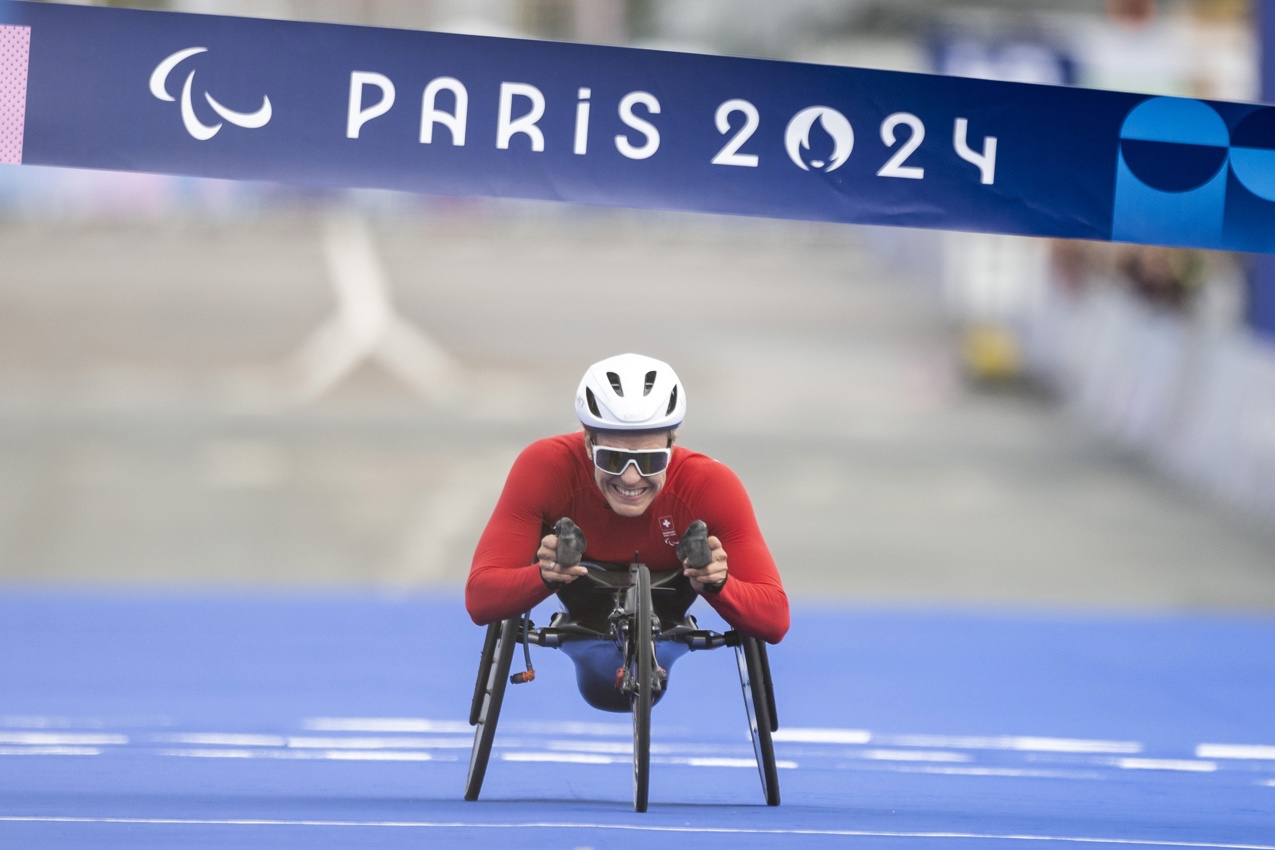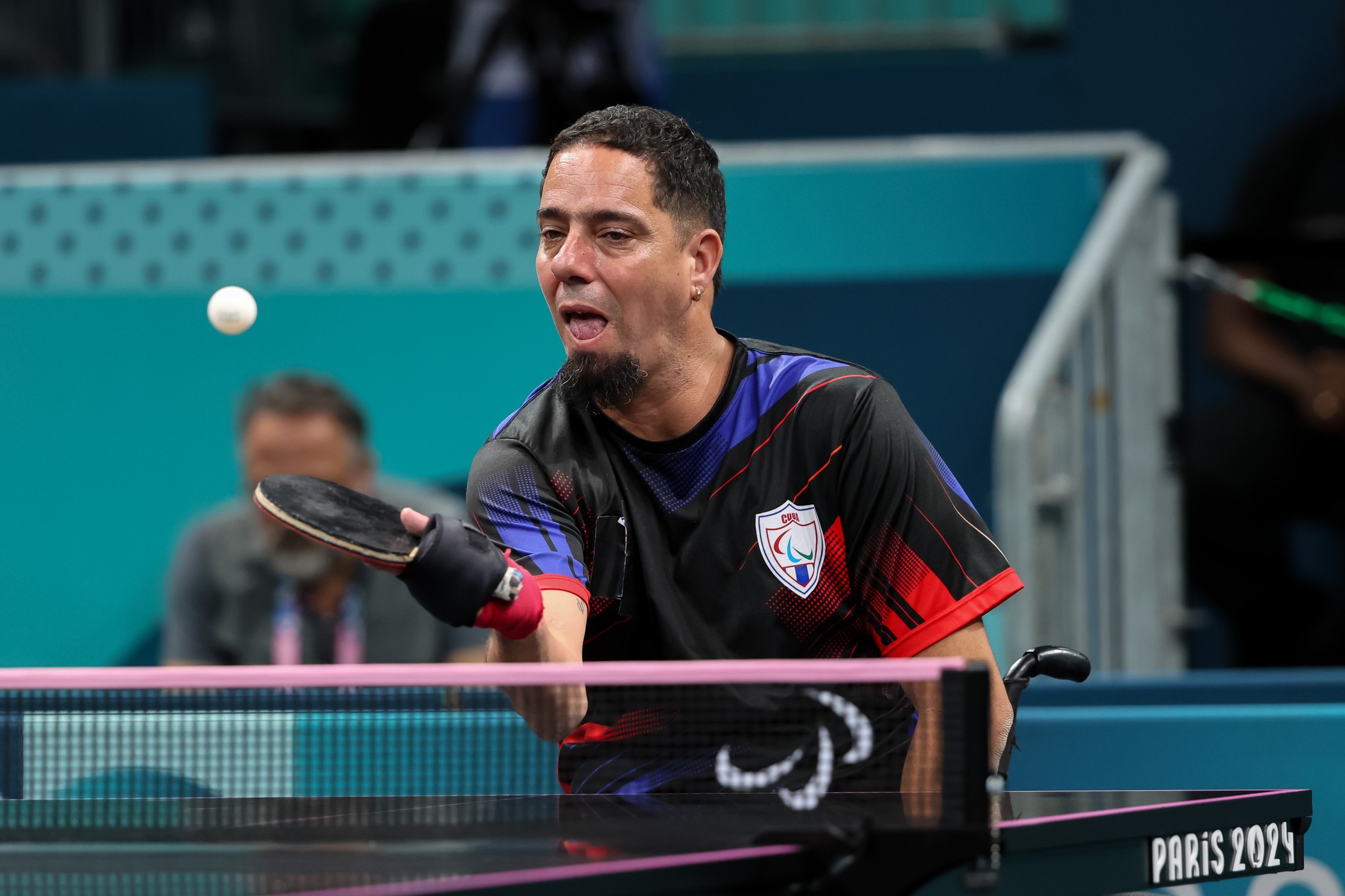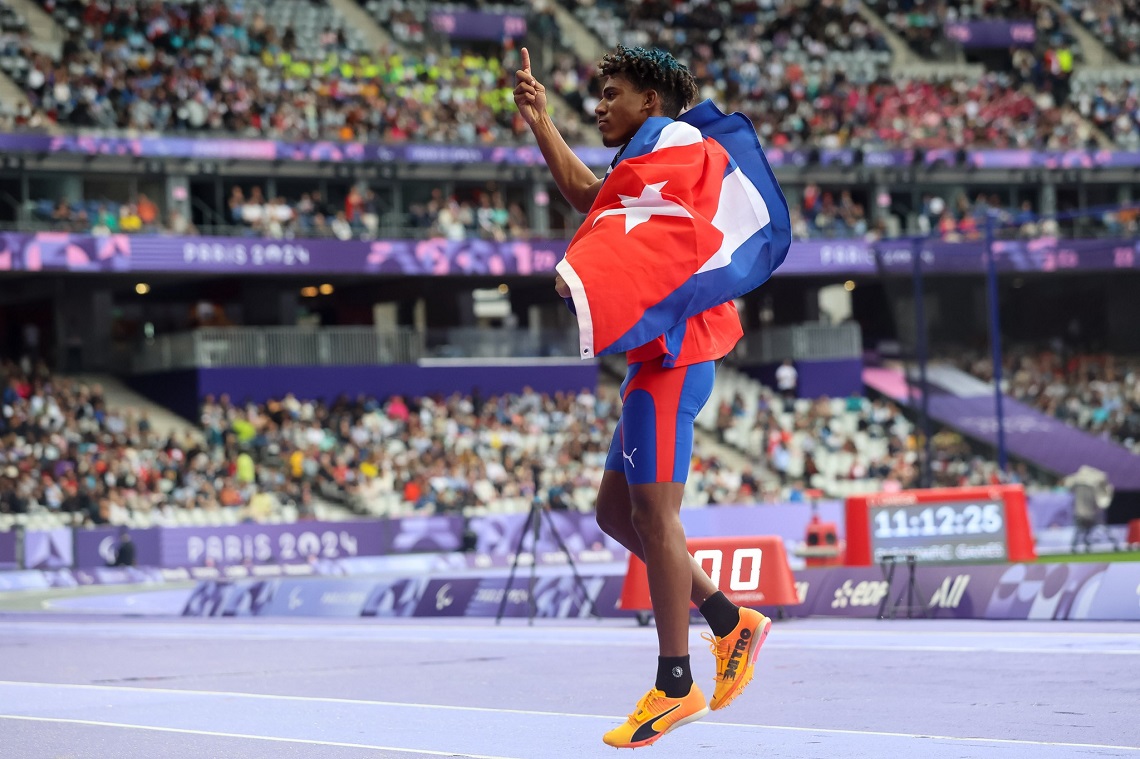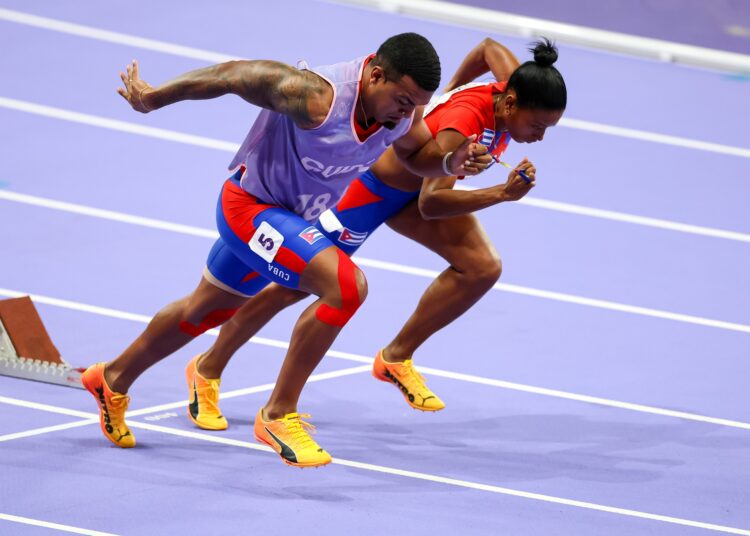For a long time I’ve felt that the euphoria for the Paralympic Games fades quickly among sports fans. This is not a phenomenon exclusive to Cuba. Apparently, it happens in all latitudes, even in a giant like China, which in Paris 2024 won more gold medals (94) than the sum of the titles of Great Britain (49) and the United States (36), which held second and third places in the medal table, respectively.
“Paralympians get a boost every four years in China’s public consciousness ― although, a week into the Paralympics, that spotlight has already dimmed significantly ― but people with disabilities in China are otherwise kept largely in the background,” warned analyst Mark Dreyer, founder of the China Sports Insider platform, in The Guardian just a few days ago.

These lines lead me to think about the true value we give as a society to achievements ― say Paralympic medals or diplomas ― or to the simple participation of disabled athletes on a top-level stage such as the summer games. Getting there requires a huge effort and achieving it is an enormous prize for these athletes; their particular thrust to life that put them in a disadvantageous situation, whether due to car accidents, domestic or work accidents, war wounds, degenerative diseases or genetic malformations.
It’s not easy and not many manage to overcome any of these setbacks, to bet on sport as a new way of life, to train, to push themselves and to compete. I always remember the case of Yunidis Castillo, a woman with aspirations of being an elite judoka who lost an arm in an accident and then found refuge in athletics, a specialty in which she became a spectacular sprinter.
Because of surmounting stories like this and many others that have been written in the Paralympic movement, we must be aware of what the participation and success of disabled athletes in events under the five rings represents, particularly Cubans, who must impose themselves in a context of multiple shortages.

This is not one of those often-used clichés, or to find justifications. In reality, the funding that the Paralympic program receives on the island is tiny compared to what the major powers spend on the competitive development of disabled athletes.
Great Britain, for example, spent around 4 million pounds sterling for the Sydney 2000 Paralympic Games, and two decades later that figure rose considerably to 54 million for Tokyo 2020, an amount that represents the entire Cuban sports budget for several years.
In the particular case of Sydney 2000, the British relied on an injection of money from the National Lottery, the same fórmula that Brazil used to strengthen its Paralympic Committee, with an availability of close to 40 million dollars just in 2023.
On the other hand, some nations (the United States, Australia, Spain, Israel, South Korea, Malaysia, France and Canada) have adopted an equal remuneration policy for Olympic and Paralympic medalists, something totally unthinkable not so long ago and which not all countries assume (Japan, Hong Kong and Singapore have different prizes for those who climb the podium). This increase in incentives has obviously led to a more demanding and much higher level of competition than in previous seasons.
In this context, in Paris 2024 Cuba exceeded the expectations and possibilities of a third world country that is going through one of its most severe economic crises. This is proven by the haul of ten medals and six crowns with a delegation of 21 athletes. This result of maximum efficiency allowed it to rise to 25th place in the medal table among 170 participating countries.
As in previous editions, a significant part of the golden harvest was led by Omara Durand, who climbed to the top three times alongside her guide Yuniol Kindelán in athletics. The runner thus closed her participation in summer events with 11 titles, a fifth of all those won by Cuba since its Paralympic history began in Barcelona 1992.
Precisely, in this period of 32 years, the success of the Cuban program in sports for the disabled has been based on the discovery of athletes with the ability to compete and win in various events.
For more than a decade, Omara has been the standard-bearer, but before a similar role was played by Oscar Turro, Omar Moya, Liiudys Beliser, Enrique Caballero, Enrique Cepeda, Diosmani González, Irving Bustamante, Lázaro Rashid Aguilar, Raciel González, Lorenzo Pérez, Luis Felipe Gutiérrez, Leinier Savón and the aforementioned Yunidis Castillo, all multi-medal winners in the same event under the five rings.
For future editions, Cuba will face a different scenario, precisely because there is no other figure in sight right now with aspirations of conquering two or three podiums. With these new circumstances, coupled with the limited possibilities of international training and the shortcomings of all kinds in the preparatory processes, it will be very difficult to repeat a position among the 30 best countries in the Paralympic Games or to emulate the pace of the last five summer events, in which at least five crowns and ten medals were obtained, except for Tokyo 2020, when the event ended with four titles and six medals.
What to do then to continue with the development of the Paralympic movement on the island? There is no perfect formula for success, much less if other financing options are not sought beyond the state sports budget. Perhaps the most sustainable path is to invest in deep recruitment processes from the base, something similar to what is done in China.
“In the US in particular, many Paralympians are injured army veterans. This is not the case in China, where many Paralympians emerge from poorer, rural areas and may have congenital diseases. This allows China to maximize its talent identification and development advantages, with many athletes entering Paralympic programs early in life, often through state-run schools and sports academies for people with disabilities,” said analyst Mark Dreyer in a study, who is clear that, without this recruitment process, China would not have reached its current levels of stardom in the concert under the five rings.
In Cuba, the model of meticulous work at the base of conventional sport prevailed for years, so there is experience. However, it is good to keep your feet on the ground: this primary system has deteriorated over the years, depressed mostly by the neglect of the facilities and the lack of qualified personnel. All these factors, obviously, are connected to the economy, which is why we mentioned earlier the need for state investment or, failing that, to look for entities or people willing to assume these investments.
Unlike China, whose state budget for sport exceeds 2.4 billion pounds sterling a year (a significant part of this amount goes to the elite systems of the Olympic and Paralympic programs), Cuba does not have sufficient funds for the development of sport, which is why including new actors in the process can be crucial.

Of course, this is not achieved overnight. As I mentioned at the beginning of the article, I feel that the euphoria for the triumphs of disabled athletes fades too quickly, and that is something that we must correct if we expect an entire community to get involved in supporting the Paralympic movement on the island.
Government, institutions, organizations, media and the public must be more involved in this endeavor, value the performance of Paralympic athletes more and recognize them at the same level as the Olympians, who could also be more committed to their colleagues. Only in this way will it be possible to continue moving towards the great objective of total inclusion, which in turn will open more doors for disabled athletes.










